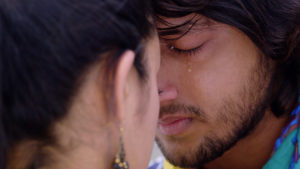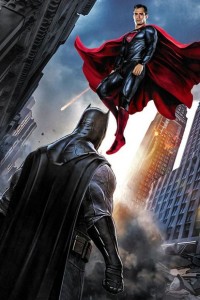
The Zone of Interest, a compelling British drama in German language by director Jonathan Glazer draws inspiration from Martin Amis’ 2014 novel. It earned five nominations for best picture, best international feature film, best sound design, best adapted screenplay and best direction at the prestigious Oscars in 2024.
The premise of the movie reads “It follows the pair as they strive to build a dream life for their family in a new home right next to the Auschwitz concentration camp” but the movie is more than just this premise.
The film’s subtext delves deeper than a mere family drama, exploring the profound indifference of Höss’ family, including their young children, towards the atrocities unfolding next door.
In the movie
The children do not startle at the sound of gunshots, the mother of five children dreams about the happy future of her family and children while thousands of Jewish children are being burned in the furnace right beside her house.
Hedwig, wife of Rudolf Höss, is persistent on staying in Auschwitz even though Rudolf has been transferred to Berlin because she has dreamed of raising her children in an open space surrounded by nature.
The juxtaposition of their private life with the background of gunshots, cries of Jewish prisoners, and the smell of burnt bodies challenge conventional perspectives on the Holocaust genre.
The true horror lies not in the explicit visuals such as murder and burning of Jewish prisoners but in the family’s desensitisation to the grim reality surrounding them.
What makes this movie different from other war genre movies is its use of sound effects.
Jonathan Glazer in conversation with The Guardian said, “There are, in effect, two films. The one you see, and the one you hear, and the second is just as important as the first, arguably more so. We already know the imagery of the camps from actual archive footage. There is no need to attempt to recreate it, but I felt that if we could hear it, we could somehow see it in our heads.”
The film uses the power of sound the gunshots and cries of Jewish prisoners rather than explicit visuals, setting it apart from conventional war movies such as The Pianist and Schindler’s List.
The deliberate choice to focus on auditory elements underscores the film’s commitment to exploring the banality of evil in a unique and impactful way which earned it the award for Best Sound Design at the Oscars 2024.
The underlined meaning in the movie

The film serves as a powerful allegory for the broader spectrum of human indifference, extending beyond wartime atrocities to encompass present-day crises such as starvation, homelessness, and state-sponsored atrocities.
The contrast of the Höss family’s idyllic life with the ongoing horrors raises uncomfortable questions about our compliance in the face of systemic injustices.
Jonathan Glazer in the same interview with The Guardian further elaborated, “I was really interested in making a film that went underneath that to the primordial bottom of it all, which I felt was the thing in us that drives it all, the capacity for violence that we all have.”
Despite believing in our inherent goodness as ‘common people’, the film challenges the notion that we are fundamentally different from historical evil figures like Hitler. It highlights the human capacity to rationalise or ignore atrocities, even when they occur in our immediate proximity.
The narrative invites introspection, forcing the audience to confront the uncomfortable reality that our inaction or indifference contributes to the perpetuation of suffering and we carry the inherent potential to be as evil as the German Nazis.
Furthermore, Hedwig’s unwavering commitment to staying in this haunting environment becomes a symbol of resilience and an embodiment of the human desire for a better life, even in the most unlikely of places.
While Auschwitz is synonymous with unimaginable horror and suffering, Hedwig sees beyond its grim history. Her dream, rooted in the simplicity of nature and open spaces, serves as a testament to the enduring human spirit, capable of finding hope and beauty amidst the bleakest circumstances.
Echoing contemporary scenario
Beyond its historical setting in the 1940s, The Zone of Interest resonates with contemporary relevance. The film serves as a mirror reflecting present-day issues, particularly with its exploration of indifference and systematic desensitisation.
As we witness the family’s ability to lead a seemingly ordinary life beside one of the largest Nazi concentration camps, the narrative becomes an allegory for the global desensitisation to ongoing atrocities, pointing to current events like the genocide in Gaza.
Glazer was one of the first Oscar winners to address the current situation in Gaza. With his trembling hands, he expressed “Right now we stand here as men who refute their Jewishness and the Holocaust being hijacked by an occupation which has led to conflict for so many innocent people, whether the victims of October 7 in Israel or the ongoing attack in Gaza”. Following his speech, only a few scattered claps resonated in response.
The Zone of Interest becomes a poignant commentary on the dangers of moral apathy and the deceptive comfort of distancing ourselves from the perpetrators of evil. By challenging the audience to recognise their potential for indifference, the film becomes a call to action a plea to break free from the cycle of turning away from human suffering, be it historical, contemporary, or systemic. In doing so, it transcends its historical setting and becomes a timeless exploration of the complexities of human morality.
The Zone of Interest is a movie about common people like us rather than the vile and evil people like Rudolf Höss or Hitler. We are no different than them and we possess the potential of being as evil as Rudolf or Hitler as we brush off the injustice happening around us.
























